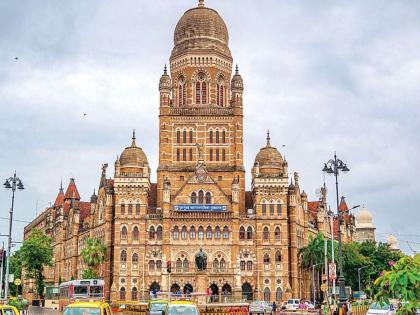BMC Elections 2025: When Was the Previous Civic Poll and What Has Changed Since?
By Lokmat Times Desk | Updated: November 21, 2025 13:38 IST2025-11-21T13:38:36+5:302025-11-21T13:38:36+5:30
As the political climate intensifies ahead of the expected Brihanmumbai Municipal Corporation (BMC) elections, likely scheduled for January 2026, ...

BMC Elections 2025: When Was the Previous Civic Poll and What Has Changed Since?
As the political climate intensifies ahead of the expected Brihanmumbai Municipal Corporation (BMC) elections, likely scheduled for January 2026, attention remains firmly on the unusually long gap since the last polls. Mumbai last elected a full civic house on February 21, 2017—nearly nine years ago. Since the conclusion of the five-year term of corporators in March 2022, the BMC—known as India’s wealthiest municipal body—has been under the control of an appointed Administrator. The continuation of administrative rule stemmed from repeated delays in delimitation, reservation procedures, and legal issues, ultimately pushing the civic electoral cycle far beyond its standard timeframe.
The 2017 Mandate and Party Performance
The 2017 BMC election marked a fierce contest for 227 seats, registering the highest voter participation in decades at 55.53 percent. The undivided Shiv Sena secured the highest tally with 84 seats, while longtime ally Bharatiya Janata Party (BJP) recorded a powerful surge, jumping from 31 to 82 seats. With neither side reaching the 114-seat majority mark, the results created a hung house. Eventually, the BJP extended support to Shiv Sena, enabling the party’s candidate to assume the Mayor’s post. Meanwhile, the Congress won 31 seats, the undivided Nationalist Congress Party (NCP) 9 seats, and Maharashtra Navnirman Sena (MNS) slipped to 7 seats.
Countdown to the Next BMC Election
With civic polls expected within the next few months, political stakeholders are preparing for a high-voltage contest amid a dramatically altered political landscape in Maharashtra. The 2017 verdict forms an important reference point, showcasing the tight rivalry between dominant forces that now stand divided and realigned in new combinations. The almost ten-year hiatus since the last public mandate intensifies the significance of the upcoming electoral outcome. The next election will shape the trajectory of civic governance, infrastructure planning and development priorities of India’s financial capital for the next five years, making the stakes higher than ever for every competing party.
Open in app